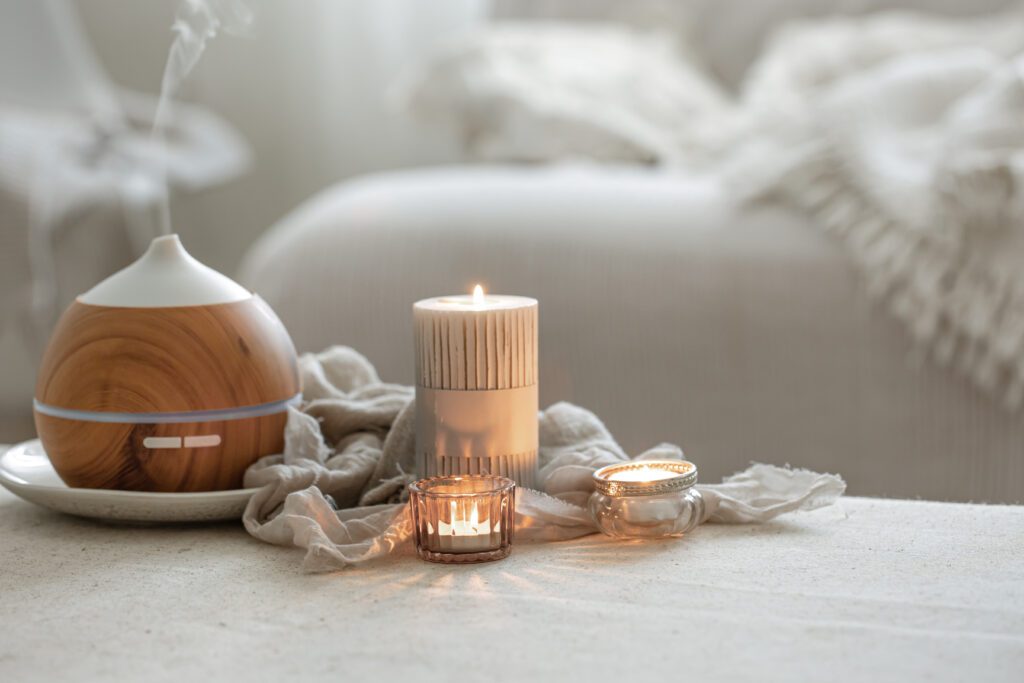
Finding Relief: Choosing the Best Humidifier for Allergies
Understanding Allergies and Humidity
For individuals suffering from allergies and sinus issues, maintaining the right humidity level can significantly impact comfort and health. Not only do humidifiers help with allergies by ensuring the air isn’t too dry, but they can also aid in alleviating symptoms of asthma and sinus conditions.
Dry air can exacerbate allergy symptoms, making the nose and throat even more irritable. A humidifier good for allergies works by adding moisture to the air, creating conditions less favorable for allergens like dust mites and mold to thrive. This extra moisture can also help soothe irritated sinuses, providing relief to those suffering from sinus congestion or asthma.
Key features to consider in humidifiers for allergies
When selecting a humidifier specifically for allergy relief, certain key features stand out for their ability to reduce allergens in the air and provide a healthier indoor environment. Here are five crucial features to consider:
1) HEPA Filters or Air Purifying Capabilities: Many modern humidifiers come with built-in HEPA filters or other air purifying technologies. These filters are highly effective at trapping allergens such as pollen, dust mites, and pet dander before they are dispersed into the air along with the moisture, making these humidifiers particularly beneficial for allergy sufferers.
2) Ultraviolet (UV) Light Sanitation: Some humidifiers are equipped with UV light technology, which can kill bacteria, viruses, and mold spores in the water tank. This feature ensures that the mist distributed into your room is not only moist but also clean and free from potential allergens or irritants that could worsen allergy symptoms.
3) Humidistat for Automatic Humidity Control: Maintaining optimal humidity levels (between 30% and 50%) is essential for preventing the growth of mold and dust mites, common allergens in homes. A built-in humidistat allows the humidifier to automatically adjust its output to maintain the set humidity level, ensuring the indoor air is neither too dry nor excessively humid.
4) Easy to Clean Design: Humidifiers that are easy to disassemble and clean can help prevent the buildup of mold and bacteria inside the device—potential allergens that could be released into the air. Look for models with wide openings and fewer small parts, which simplify the cleaning process and promote better hygiene.
5) Cool Mist Feature: While both warm and cool mist humidifiers can be effective for allergy sufferers, cool mist models are often preferred due to their ability to maintain a comfortable room temperature. Warm mist humidifiers, by contrast, can make a room feel warmer, which might not be ideal for all seasons or climates. Additionally, cool mist humidifiers are generally safer, as they don’t involve heating water to a boil, reducing the risk of burns.
Top Humidifier Picks for Allergies
When diving into the market’s offerings, certain models stand out for their prowess in providing relief and enhancing the quality of life for allergy sufferers. Among these, the Levoit Classic 300S, Vicks V4600, Pure Enrichment MistAire, Homedics TotalComfort, and Honeywell HEV685W are lauded as the best humidifiers for allergies, each bringing unique features to the table.
Best Overall humidifier for allergies: Levoit Classic 300S Humidifier
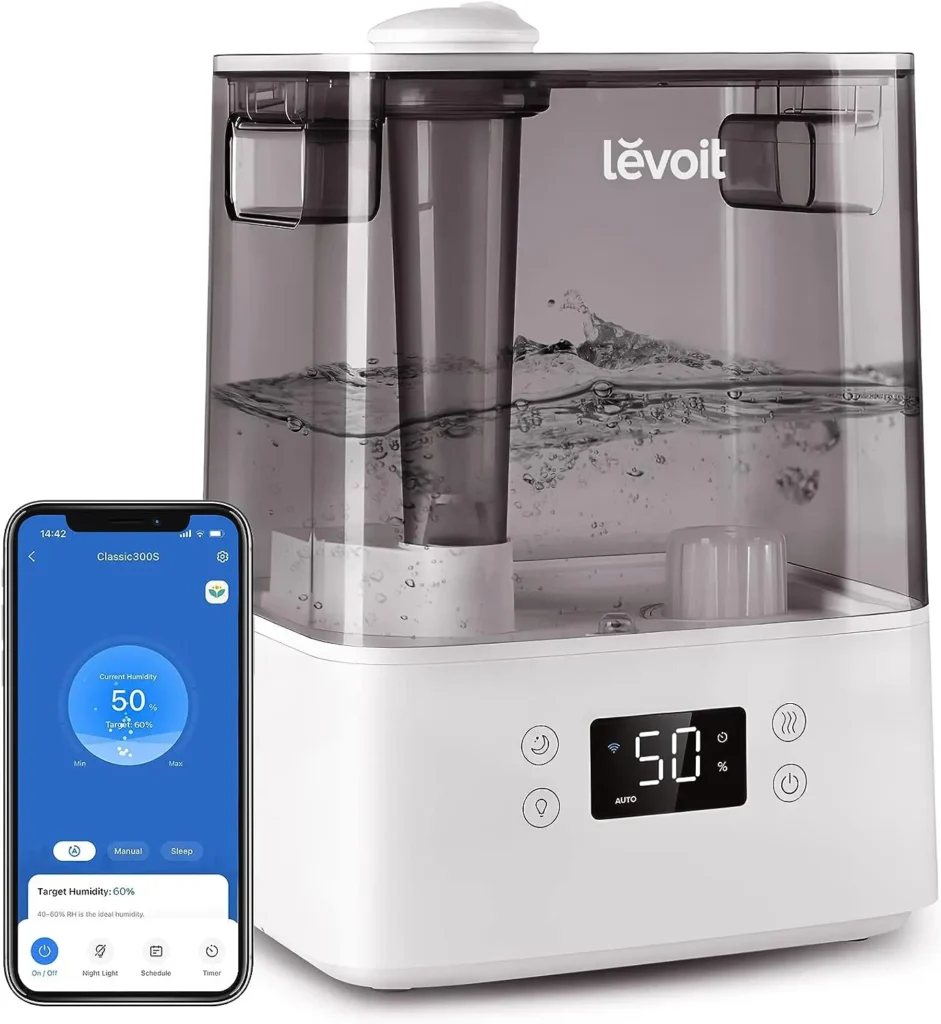
This smart ultrasonic humidifier offers both functionality and convenience, making it an exceptional choice. Its ability to connect to Wi-Fi allows users to control humidity levels directly from their smartphones, ensuring the environment remains optimal for those with allergies and sinus issues. The Classic 300S’s large capacity and extended runtime eliminate frequent refills, providing continuous comfort day and night.
No products found.
Best cool mist humidifier for allergies: Vicks V4600
Recognized for its simplicity and effectiveness, the V4600 helps ease symptoms of allergies and asthma. Its cool mist keeps the air moist without cooling the room further, making it the best bedroom humidifier for allergies. Additionally, the option to use Vicks VapoPads introduces soothing menthol and eucalyptus vapors into the air, offering extra comfort for congested nights.
No products found.

Best Budget-friendly humidifier for allergies: Pure Enrichment MistAire
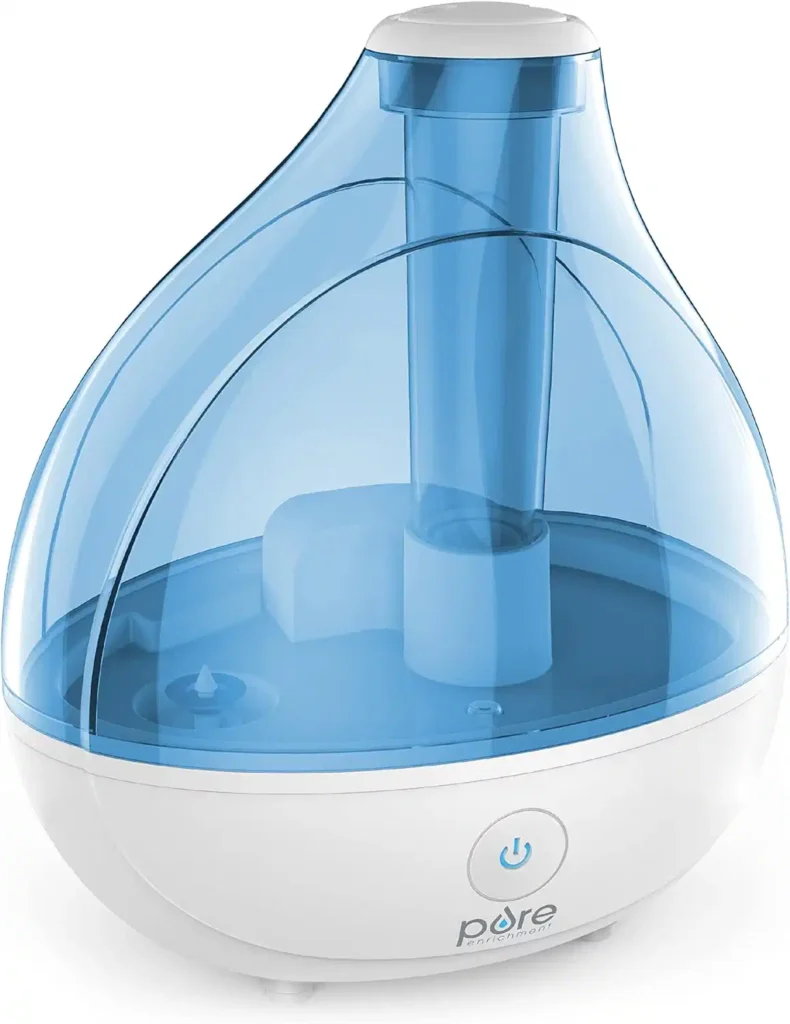
With its sleek design and whisper-quiet operation, the MistAire is a dream for allergy sufferers seeking a peaceful night’s sleep. Its fine mist helps alleviate dry air’s impact on sinus and allergy symptoms, proving that a humidifier is good for allergies. Easy to clean and maintain, it’s a practical choice for any home.
No products found.
Best Ultrasonic humidifier for allergies: Homedics TotalComfort
This device takes versatility to the next level with its dual-tank system, ensuring an uninterrupted supply of moist air. The TotalComfort’s ultrasonic technology produces a micro-fine mist, which effectively hydrates the air, providing relief for allergy and asthma symptoms. Its customizable settings allow users to create a tailored environment that supports their health needs.
No products found.
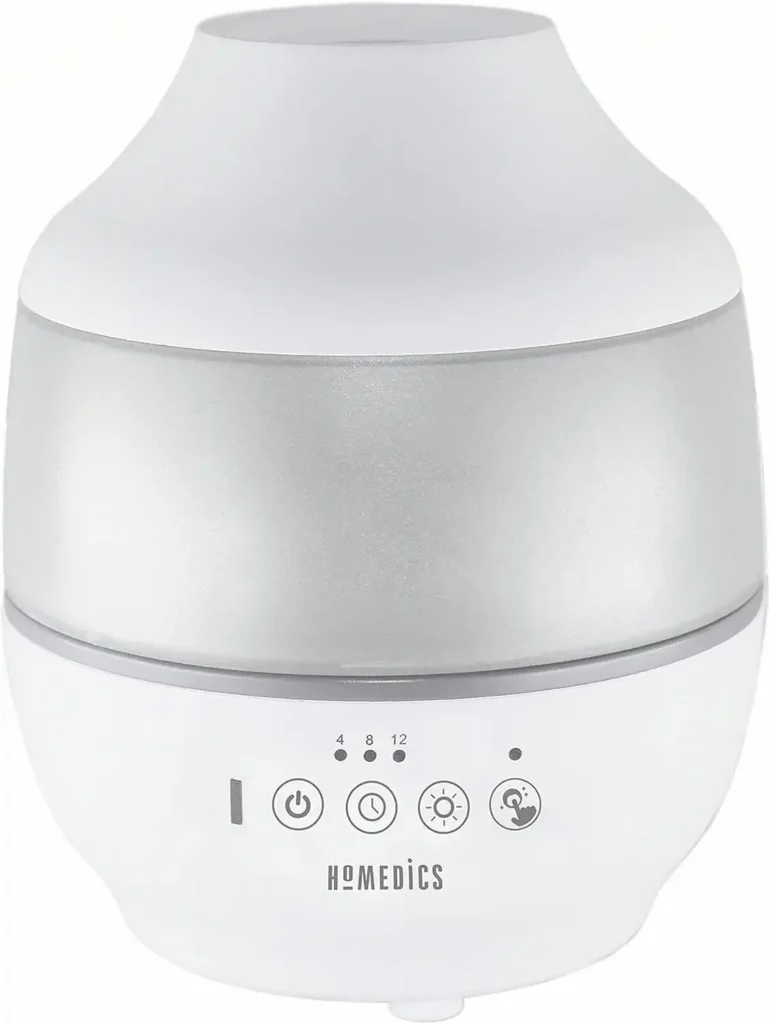
Best Top Fill humidifier for allergies: Honeywell HEV685W
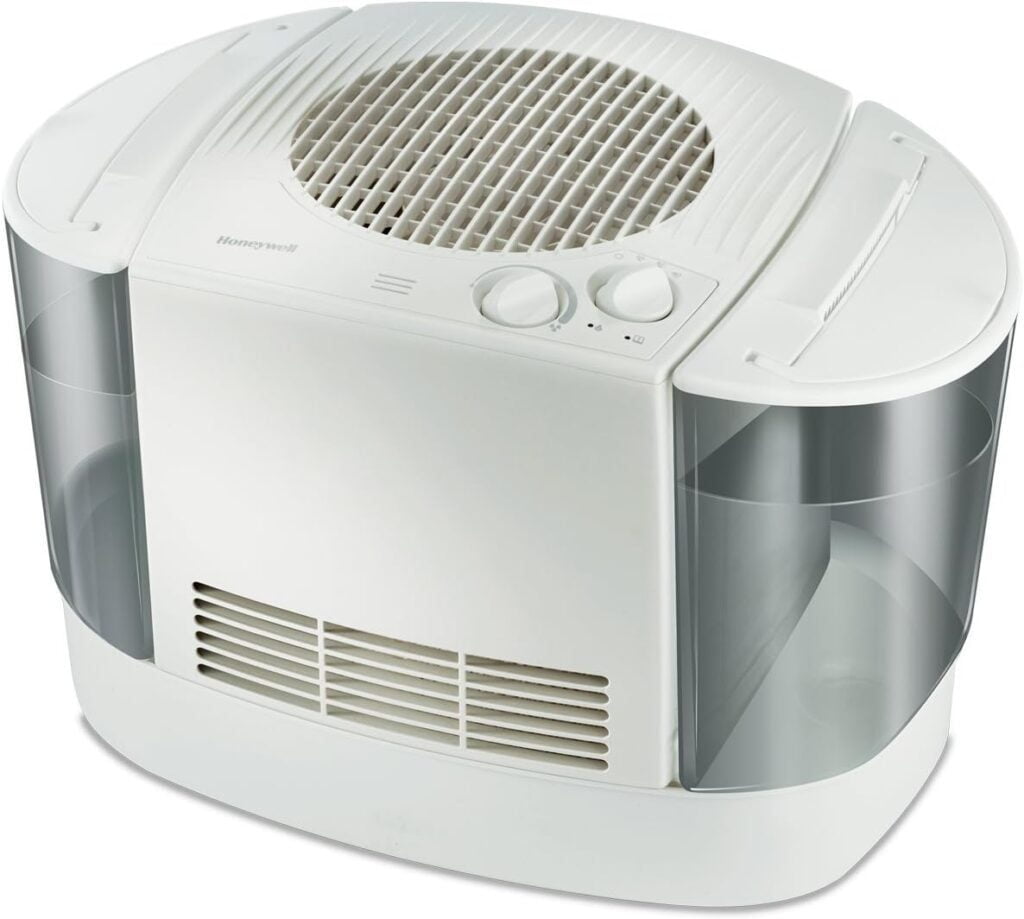
For those with larger spaces, the HEV685W offers an impressive output with its dual-tank system, ensuring your entire home benefits from optimal humidity levels. Its evaporative technology efficiently circulates moist air throughout the room, reducing the presence of allergens and providing significant relief from allergy and sinus discomfort. The top-fill design simplifies the refilling process, making maintenance a breeze.
No products found.
A humidifier can be a game-changer for those suffering from allergies, asthma, and sinus issues. It’s crucial to select a model that not only optimizes humidity levels but also prioritizes cleanliness and ease of use. Brands like Levoit, Vicks, Honeywell, Homedics, and Pure Enrichment offer some of the best solutions on the market, catering to various needs and preferences. By choosing the right humidifier, you can create a more comfortable and allergen-free environment in your home, proving that a humidifier is indeed beneficial for allergy sufferers. Remember, the best humidifier for allergies is one that suits your specific needs, offering both relief and comfort.
Final consideration to choose a humidifier for allergies
Choosing the right humidifier can play a crucial role in managing allergies. Here are some essential tips to consider when selecting a humidifier specifically for allergy relief:
1) Choose the Right Size: Ensure the humidifier is appropriately sized for the room where it will be used. A unit that’s too small may not effectively maintain humidity levels, while one that’s too large can contribute to excessive moisture, promoting mold growth and worsening allergies.
2) Safety Features: If you are considering a warm mist humidifier or one with a heating element, look for safety features like automatic shut-off when the unit runs out of water to prevent overheating and potential accidents.
3) Quiet Operation: Since the humidifier will likely be used in bedrooms or other quiet spaces, opt for a model that operates quietly to avoid disrupting sleep or daily activities.
4) Avoid Ozone-Producing Units: Some air purifiers and humidifiers may produce ozone, which can irritate the lungs, especially for people with asthma or allergies. Ensure the product you choose does not emit ozone.
By keeping these tips in mind, you can find a humidifier that not only helps maintain the ideal humidity level in your home but also supports a healthier environment for managing allergies.


